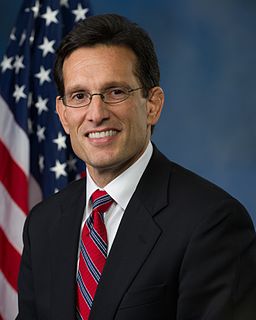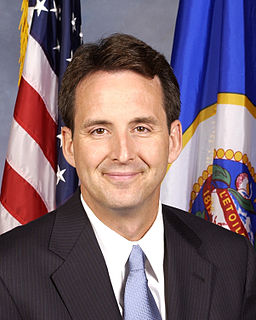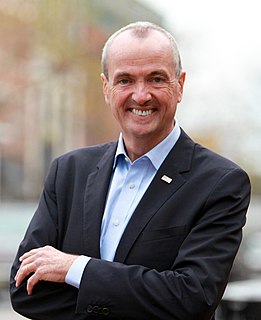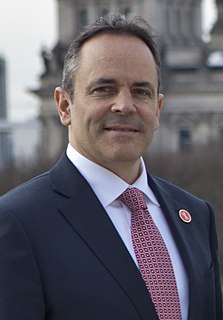A Quote by Bobby Jindal
I don't think anybody should be expanding Medicaid. I think it's a mistake to create new and more expensive entitlement programs when we can't afford the ones we've got today. We've got to stop this culture of government dependence.
Related Quotes
I think if you look at Medicare and Medicaid, the premise was that government needs to provide some assistance to people who aren't able to take care of themselves. I think we all share that goal, Republicans and Democrats. I don't think anybody's gonna go back now and say, Let's abolish, or reduce, Medicare and Medicaid. But as we confront the challenges and the responsibilities of our time - from here on - how do we serve more people or different people who are in need of financial assistance? Just forever having the government expand to address all of that seems unwise.
... I don't think anybody should avoid mistakes. If it is within their nature to make certain mistakes, I think they should make them, make the mistakes and find out what the cost of the mistake is, rather than to constantly keep avoiding it, and never really knowing exactly what the experience of it is, what the cost of it is, you know, and all the other facets of the mistake. I don't think that mistakes are that bad. I think that they should try and not do destructive things, but I don't think that a mistake is that serious a thing that one should be told what to do to avoid it.
One of the things I think we have to do is make sure that college is affordable for every young person in America. And I also think that we're going to have to rebuild our infrastructure, which is falling behind, our roads, our bridges, but also broadband lines that reach into rural communities. So there are some things that we've got to do structurally to make sure that we can compete in this global economy. We can't shortchange those things. We've got to eliminate programs that don't work, and we've got to make sure that the programs that we do have are more efficient and cost less.
By government giveaway programs, individuals are often hurt far more than they are helped. The recipients of these programs become dependent on the government and their dignity is destroyed. Is it compassionate to enslave more and more people by making them a part of the government dependency cycle? I think compassion should be measured by how many people no longer need it. Helping people to become self-sufficient is much more compassionate than drugging them with the narcotic of welfare.
Most Americans living below the official poverty line own a car or truck - and government entitlement programs seldom provide cars and trucks. Most people living below the official poverty line also have air conditioning, color television, and a microwave oven - and these too are not usually handed out by government entitlement programs.
Cell phones and other electronic devices are by no means unheard of in low-income neighborhoods, where children would supposedly go hungry if there were no school-lunch programs. In reality, low-income people are overweight more often than other Americans.

































